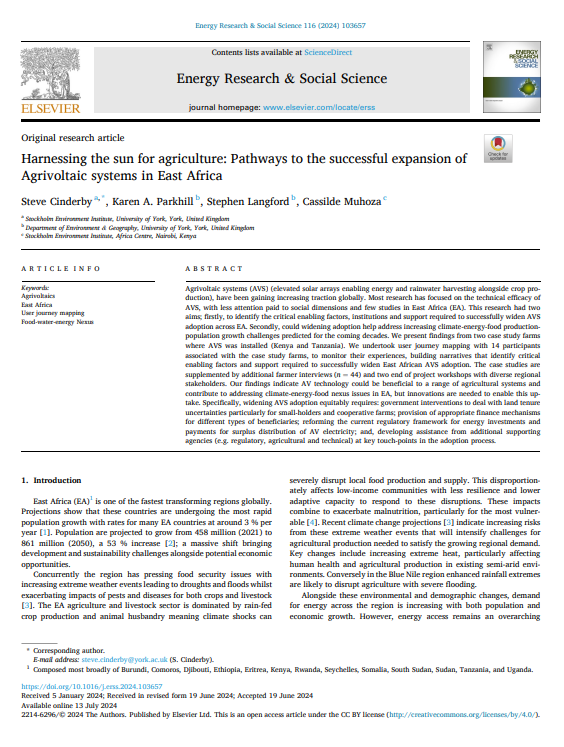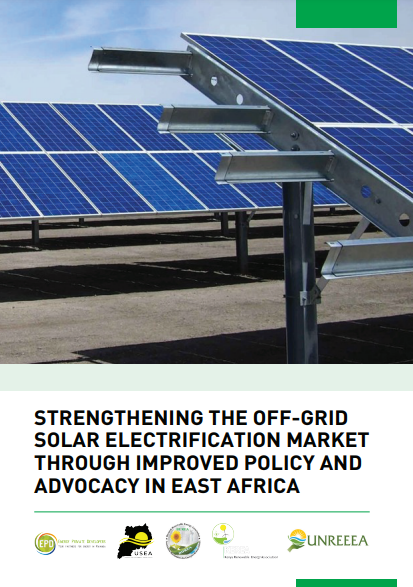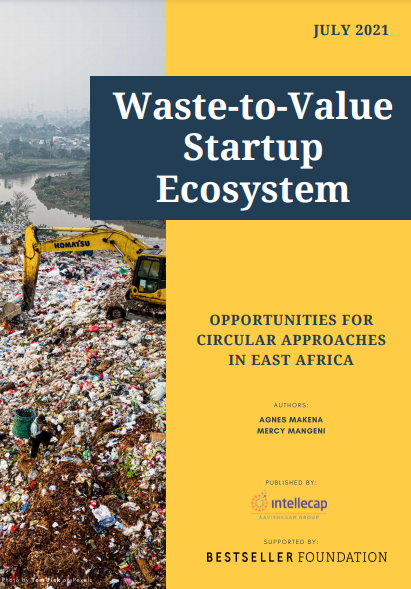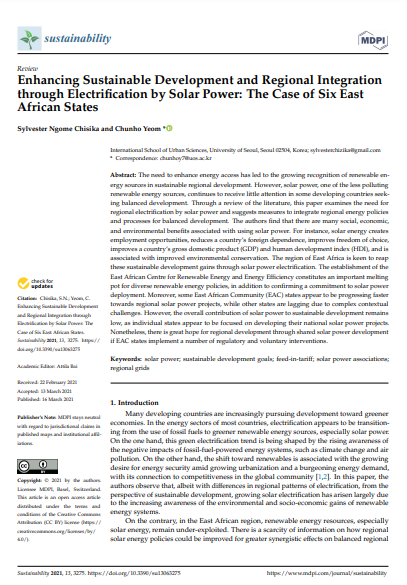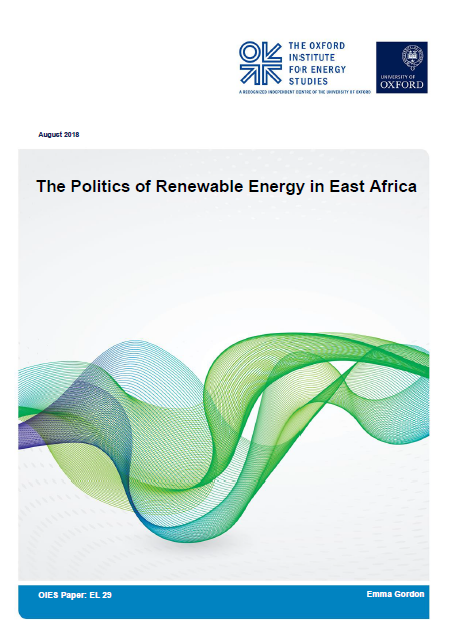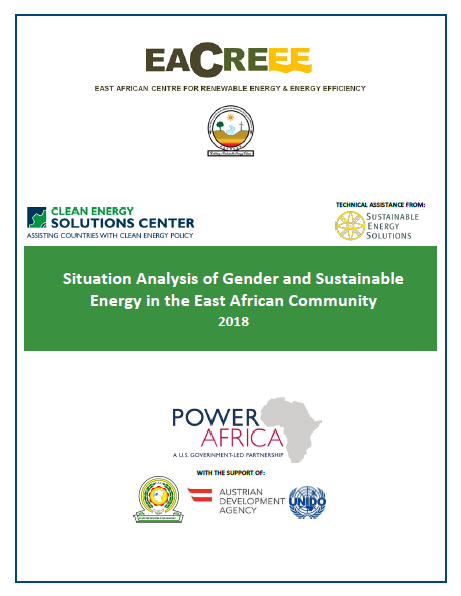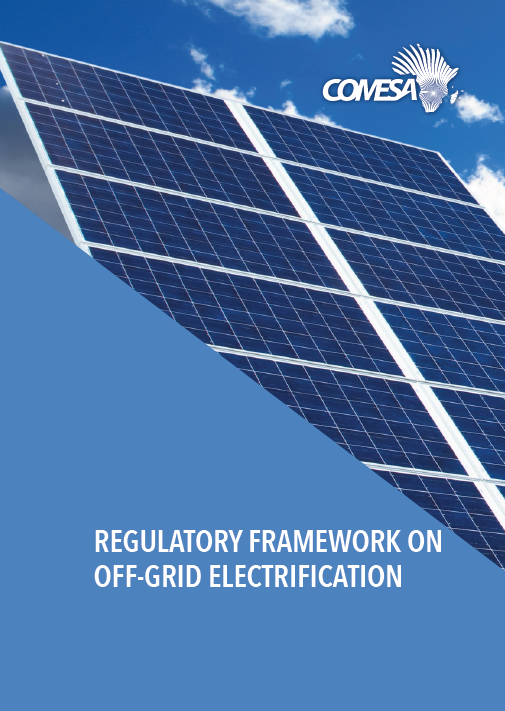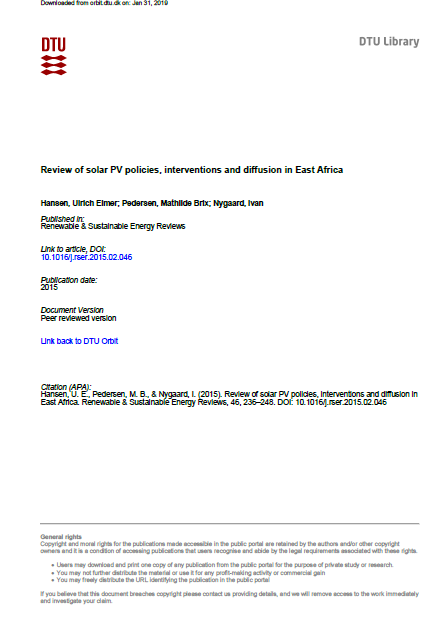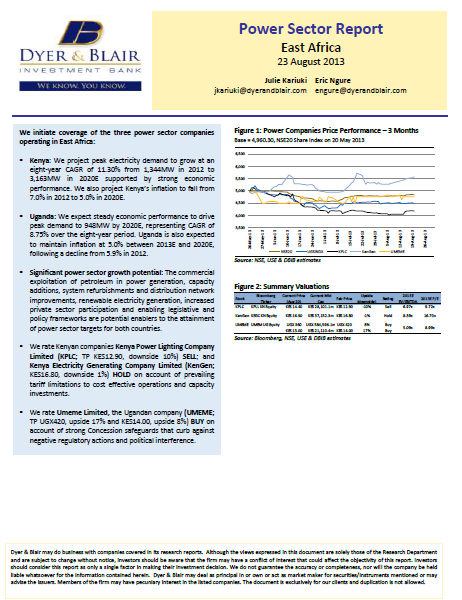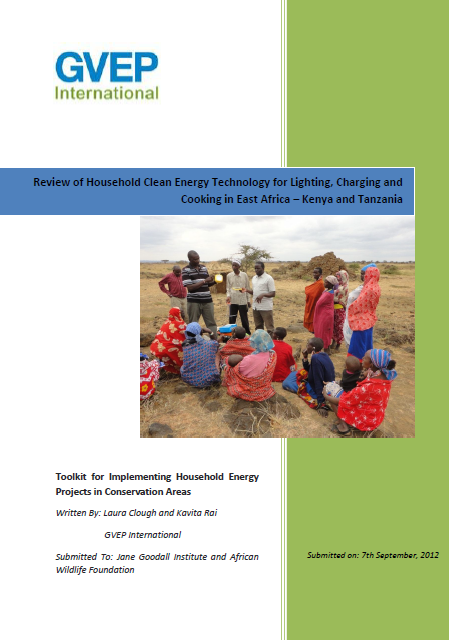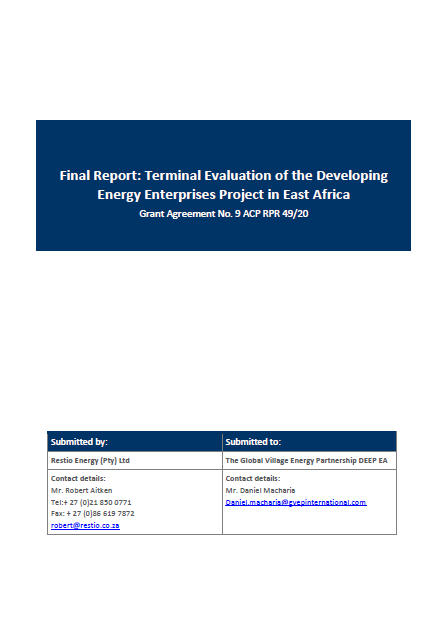We post here the relevant reports for the power sector in East Africa. Feel free to join our efforts and share us any other you may have found. We'd be glad to add them to the list. Just send an email to This email address is being protected from spambots. You need JavaScript enabled to view it.
Browse by Country:
Publication date: 13 July 2024
Author: Elsevier
Description: Agrivoltaic systems (AVS) (elevated solar arrays enabling energy and rainwater harvesting alongside crop production), have been gaining increasing traction globally. Most research has focused on the technical efficacy of AVS, with less attention paid to social dimensions and few studies in East Africa (EA). This research had two aims; firstly, to identify the critical enabling factors, institutions and support required to successfully widen AVS adoption across EA. Secondly, could widening adoption help address increasing climate-energy-food production-population growth challenges predicted for the coming decades. We present findings from two case study farms where AVS was installed (Kenya and Tanzania). We undertook user journey mapping with 14 participants associated with the case study farms, to monitor their experiences, building narratives that identify critical enabling factors and support required to successfully widen East African AVS adoption.
Download Report >>
Visit Website >>
Publication date: August 2021
Author: NREAs
Description: The East African region has been recognised as a prime location for solar energy growth as it experiences very high levels of solar irradiation (1500 - 3000 kWh/m2/year) throughout the whole year. However, in terms of energy access, the region has the highest share of un-electrified populations in the continent. With the population of East Africa standing at 177 million people, it is estimated that about 82 million people living in Uganda, Kenya and Tanzania do not have electricity access . Less than a quarter of the regional population (about 44 million People) have access. Kenya stands at 56%, Uganda at 42.6%, Rwanda at 59.7%, and with Tanzania at 36%. Burundi is one of the least electrified countries globally, with only 7% access. It is noteworthy that access is mostly skewed to more economically empowered persons in the region. Even those that are privileged enough to have access, most often experience a service that is unreliable and expensive. The unreliable and expensive grid electricity are the main drivers for the scale up and development of solar energy systems in the region.
Download Report >>
Visit Websit >>
Publication date: July 2021
Author: Intellecap
Description: Sub-Saharan Africa generated an estimated 174 million tonnes of waste in 2016, at a rate of 0.46 kg per capita per day, and is projected to be the world’s fastest-growing waste-generating region by 2050. The continent finds itself struggling to achieve adequate waste management and disposal practices to keep up with the growing population and production. Waste management is, therefore, a key to the socioeconomic and environmental challenges affecting most countries on the continent.
Download Report >>
Visit Websit >>
Publication date: March 2021
Author: MDPI
Description: The need to enhance energy access has led to the growing recognition of renewable energy sources in sustainable regional development. However, solar power, one of the less polluting renewable energy sources, continues to receive little attention in some developing countries seeking balanced development. Through a review of the literature, this paper examines the need for regional electrification by solar power and suggests measures to integrate regional energy policies and processes for balanced development. The authors find that there are many social, economic, and environmental benefits associated with using solar power.
Download Report >>
Visit Websit >>
Publication date: 2018, August
Author: The Oxford Institute for Energy Studies
Description: The renewable energy sector in East Africa presents a vibrant investment environment with opportunities for large on-grid projects in geothermal and wind, as well as commercially viable distributed solar investments. However, the prevalence of political, regulatory, and security risks can contribute to long delays in project finance.
Download Report >>
Publication date: 2018, June
Author: EACREEE
Description: This draft report was prepared by Sustainable Energy Solutions for the Clean Energy Solutions Center for the benefit of EACREEE, and with generous support from Power Africa.
Download Report >>
Visit Website >>
Publication date: 2017, December
Author: COMESA
Description: The main objective of the COMESA Off-Grid Electrification Framework is to provide COMESA Member States with harmonized guidelines that would facilitate off-grid electrification regulation harmonization in the COMESA region in efforts to ensure that private sector investors are more-or-less faced with similar off-grid electrification regulatory frameworks in the COMESA region.
Download Report >>
Publication date: 2015, August
Author: UNEP
Description: This paper adopts a regional perspective by reviewing developments in supportive policies, donor programs and diffusion status in all PV market segments in Kenya, Tanzania and Uganda, as well as identifying the key factors put forward in the literature to explain differences in the diffusion of SHS in these three countries.
Download Report >>
Publication date: 2013, August
Author: Dyer & Blair
Description: In summary, there exists significant potential for power sector companies. Prospects of rising electricity sales on the back of strong economic performance, population growth and system loss reductions point to strong potential performance. This is however highly dependent on the actual price of electricity: maintaining commercially viable power prices that reflect business costs while preserving end user affordability will therefore remain a challenge.
Download Report >>
Publication date: 2012, September
Author: GVEP International
Description: This toolkit has been designed as a resource document for the African Wildlife Foundation (AWF) and Jane Goodall Institute (JGI) to implement clean energy projects at the household level in conservation areas in Kenya and Tanzania. The toolkit will guide the user through the steps of designing and implementing an energy program.
Download Report >>
Publication date: 2007, January
Author: Restio Energy
Description: The Developing Energy Enterprise Project (DEEP) has concluded and this document evaluates the achievements of this programme. The Introduction provides a background to the DEEP project, providing an overview of the project’s objectives, to improve access to modern energy services in East Africa, which includes a country focus of Kenya, Tanzania and Uganda.
Download Report >>





